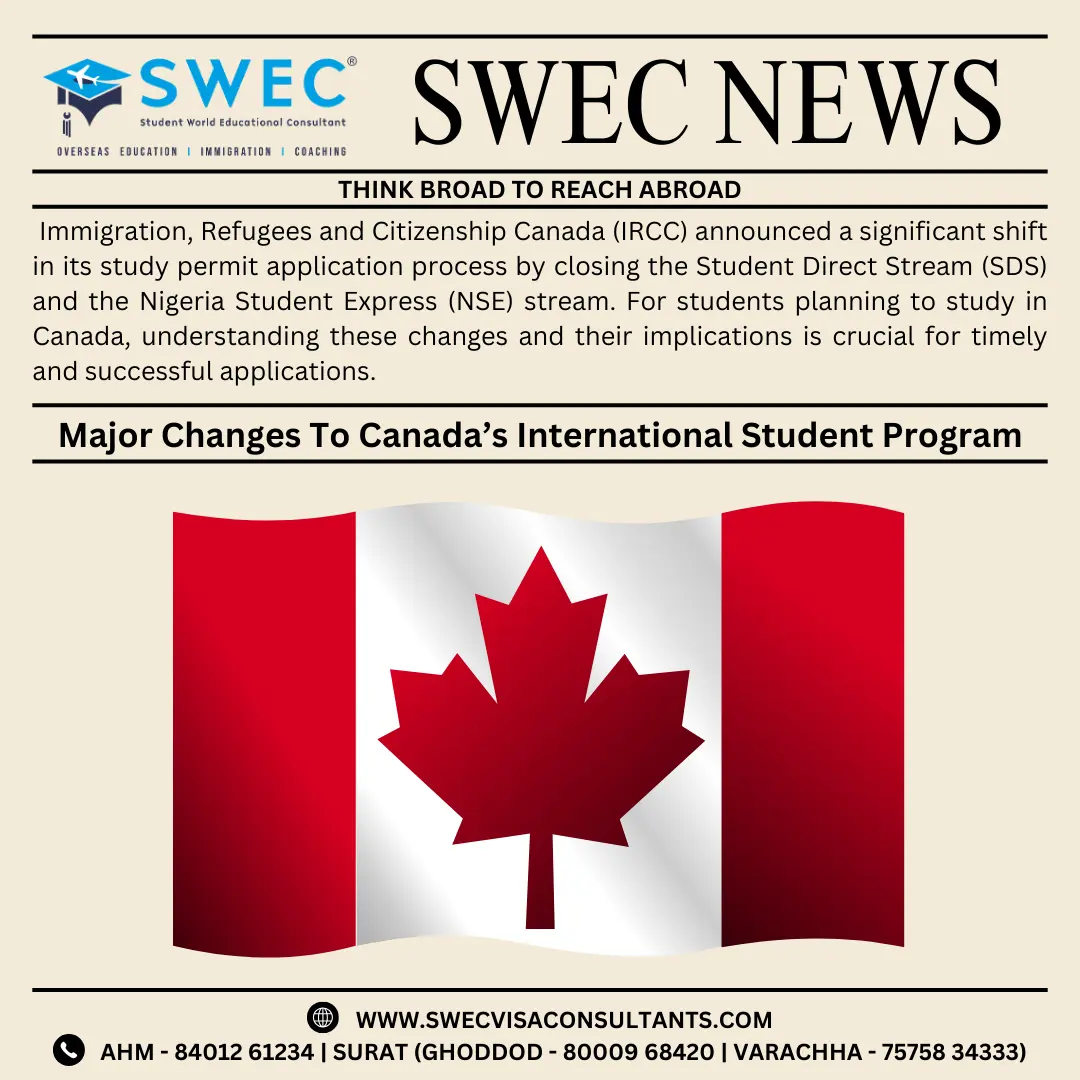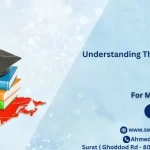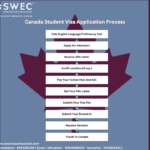On November 8, 2024, Immigration, Refugees and Citizenship Canada (IRCC) announced a significant shift in its study permit application process by closing the Student Direct Stream (SDS) and the Nigeria Student Express (NSE) stream. These closures mean that all study permit applications, including those from previous SDS countries like India, China, and Pakistan, will be processed through the standard application process. For students planning to study in Canada, understanding these changes and their implications is crucial for timely and successful applications.
What Was the Student Direct Stream (SDS)?
The SDS was introduced in 2018 to expedite study permit processing for students from 14 specific countries, including India, China, the Philippines, and Pakistan. The streamlined process allowed applicants to benefit from faster processing times as long as they met specific requirements, such as:
- Providing language test results (e.g., IELTS)
- Submitting proof of a Guaranteed Investment Certificate (GIC) valued at $20,635 CAD
For students who previously relied on the SDS for quicker application outcomes, the closure will likely lead to longer wait times.
Why Did IRCC Close the SDS and NSE Streams?
The closure of the SDS and NSE streams is part of IRCC’s broader strategy to manage the increasing demand for Canadian study permits. In recent years, Canada has seen a surge in international student applications, and IRCC has begun implementing measures to control the temporary resident population, which includes both study and work permit holders. These changes reflect Canada’s approach to managing the impact of immigration on housing, job availability, and other resources.
New Requirements and Changes to Canada’s Study Permit System
Alongside the closure of the SDS, Canada has introduced several measures for international students, including:
- Cap on Study Permits: In 2025, IRCC will limit new study permits to 437,000, affecting students across all levels, including master’s and PhD programs.
- Language and Program Eligibility for PGWP: Specific fields of study and language requirements will now be essential for students applying for the Post-Graduation Work Permit (PGWP).
- Spousal Work Permits Limited: The availability of open work permits for spouses of international students is now restricted.
- Increased Cost-of-Living Requirements: The financial threshold for demonstrating the ability to support oneself while studying in Canada has been raised, reflecting the country’s updated cost of living standards.
What This Means for Future Study Permit Applicants
For those who would have qualified for the SDS, the transition to the standard study permit process will mean longer application times. For example, as of November 2024, study permits from India are taking approximately eight weeks to process.
This change emphasizes the importance of beginning applications early, especially as demand for Canadian study permits remains high. Understanding the application requirements for language proficiency, financial proof, and field of study will help students improve their chances of timely processing.
Tips for Prospective Students in Canada
- Start Applications Early: Processing times are longer under the standard study permit, so applying early will reduce delays.
- Ensure Financial Proof: Meeting Canada’s updated cost-of-living requirements is now more critical than ever.
- Meet Language and Program Requirements: Verify that your program aligns with PGWP eligibility if you plan to work in Canada post-graduation.
Conclusion
The closure of the SDS and the introduction of stricter measures in Canada’s international student program mark a pivotal change for prospective students. Canada remains an attractive destination for international education; however, students should be prepared for longer application times and ensure that they meet the latest requirements for financial stability and language proficiency.
Stay ahead of the changes with expert guidance from SWEC Visa! If you’re planning to study in Canada and are concerned about the recent closure of the Student Direct Stream (SDS), don’t worry—our experienced team is here to help you navigate the new process. Get personalized advice, and step-by-step support, and ensure a smooth application experience. Contact SWEC Visa today to start your journey to studying in Canada with confidence!





